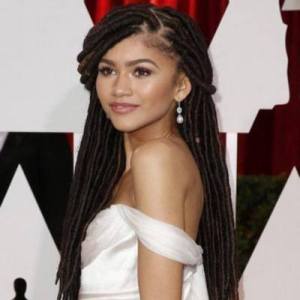The Oscars always leaves us with lots to talk about from the funny host to the victors to the celebrities who graced the Red Carpet in elegant gowns and suits. This year, Zendaya Coleman and Giuliana Rancic were thrown into the mix of the post-Oscars conversation. Coleman, an 18-year-old Disney actress and singer, debuted long dreadlocks on The Oscar’s Red Carpet.

Credit: Facebook
Giuliana Rancic, co-host of Fashion Police criticized Zendaya’s new look, “I feel like she smells of patchuouli oil…yeah, maybe weed.” The audience and co-hosts of Fashion Police laughed at Rancic’s comments but realized later that it was no laughing matter. Zendaya posted an eloquent message on Instagram where she informs Rancic about her reason for wearing locks and mentions intelligent and respected people who don locks, such as Ava DuVernay and Vincent Brown. Zendaya says, “My wearing my hair in locs on an Oscar red carpet was to showcase them in a positive light, to remind people of color that their hair is good enough.”
Zendaya’s well-stated response garnered an “apology” from Rancic on Twitter. I put apology in quotation marks because it was far from that. Rancic’s message was: “Dear @Zendaya I’m sorry I offended you and others. I was referring to a bohemian chic look. Had NOTHING to do with race and NEVER would!!!”
On the contrary, Rancic’s comment does have to do with race; it was a microaggression: she didn’t intend to hurt Zendaya as the show pokes fun at every celebrity, but her comment still reflects racial stereotypes. Microaggressions often have the same effect as conscious discrimination. In other words, you don’t have to make an overtly racist statement in order to perpetuate stereotypes.
In addition, Rancic’s initial apology also reveals a huge misunderstanding (or ignorance); Rancic said she was referring to a “bohemian chic look.” Bohemian- chic or boho-chic is influenced by hippie culture. However, dreadlocks are associated with Rastafarianism, a religion that originated in Jamaica in the 1930s. Rastafarians see dreadlocks as a spiritual symbol. Today, not everyone who sports dreadlocks is a Rastafarian since locks have been adapted into larger black culture as a figure of defiance against white standards of beauty.
Black men and women’s hair suffers from disproportionate criticism. As a result, a lot of black people have felt the need to conform to the Eurocentric ideal of wearing straightened hair. Often times, dreadlocks or unstraightened black hair is seen as unprofessional and distracting. Even in the US army, soldiers are not allowed to wear their hair in dreadlocks.
Rancic gave a more heart-felt apology to Coleman during a taping of E! News. Rancic somberly noted, “This really has been a learning experience for me. I learned a lot today and this incident has taught me to be a lot more aware of clichés and stereotypes, and how much damage they can do. And that I am responsible, as we all are, to not perpetuate them further.”